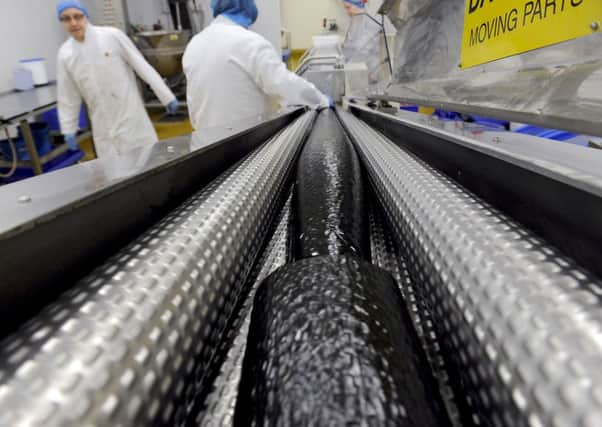Scottish economy resilient but orderly Brexit '˜essential'


The Scottish Chambers of Commerce economic indicator survey for the third quarter illustrates a “broadly positive” Scottish economy with 43 per cent of firms reporting increased revenue, and just 17 per cent recording a decrease.
However, overall investment dropped in the three months to September, with all sectors except retail experiencing a decline compared with the previous quarter. The study indicated investment expectations for the future are also slowing, as just 27 per cent of firms are looking to increase investment in the final quarter, compared to 32 per cent previously.
Advertisement
Hide AdAdvertisement
Hide AdThe survey also revealed a general downward trend in optimism, with 21 per cent of the sample Scottish companies feeling less optimistic about the business environment than in Q2, relative to 15 per cent last quarter.
This feeling was particularly strong in the manufacturing sector, which posted its first negative optimism figure, -4, since Q3 2016. Firms cited factors including rising raw material prices, exchange rate issues and the impact of additional tariffs between major economies as among their growing cost pressures.
Neil Amner, of Anderson Strathern and chair of the Scottish Chambers of Commerce economic advisory group, said: “Our survey results for the third quarter of 2018 suggest that the Scottish economy continues to be resilient, but firms are becoming cautious as uncertainty grows around the future trading environment with the European Union.
“It’s particularly concerning to see the manufacturing sector report a negative score for optimism. This is the first negative score reported since the third quarter of 2016, suggesting that the combination of rising material costs and continued uncertainty around future trading conditions are beginning to affect the confidence of businesses in this sector.”
Amner stressed that the UK must confirm future arrangements with the EU, “particularly a status quo transition period”, to create a stable operating environment for future business investment.
He added that the Scottish Government should encourage investment by providing certainty on policy in “key devolved areas”, such as skills and non-domestic rates.
Graeme Roy, director at the University of Strathclyde’s Fraser of Allander Institute, said: “This survey is further clear evidence of the importance of securing a smooth Brexit transition to protect Scotland’s economy.
“Whether you agree or disagree with the decision to leave the EU, it is essential that we have an orderly transition. Crashing out of the EU in March next year threatens to severely impact on businesses right across the Scottish economy.”